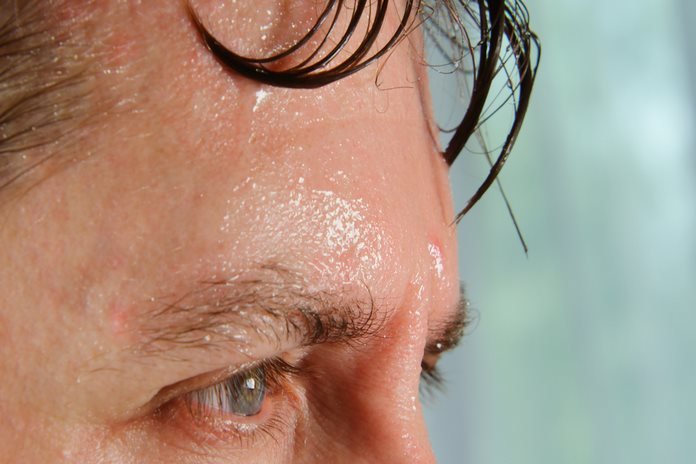Sweaty Face and Head

In the case of hyperhidrosis, a person suffers from sweat pouring all over their forehead while sitting at the desk, streams of facial sweat getting in the way of their work, or preventing them from thriving socially. All these scenarios of facial and head sweating are consistent suffering for a person with hyperhidrosis and are specifically known as craniofacial hyperhidrosis. Facial sweating is one of the commonly occurring symptoms of hyperhidrosis and is the most embarrassing and stressful symptom of hyperhidrosis. Moreover, people who experience heavy sweating at other parts of the body might start experiencing facial sweating that causes the most trouble for them.
The reason behind this is that the human face is the first presentation of our true self to the whole world and we are almost unable to hide the symptoms of excessive sweating on our faces. The first course of treatment for anyone with excessive sweating on the face is to seek medical help by ruling out any possible causes leading to sweating. The medical check-up includes a detailed assessment to be sure that hyperhidrosis is a side effect of a certain medication or any other medical condition. People with extreme sweating resulting due to a medication or any medical condition come under the category of secondary type of hyperhidrosis.
Moreover, secondary hyperhidrosis can indicate a more severe health issue and so one must always go for a detailed medical check-up. If the doctor evaluates that your excessive sweating is independent of any medication or any other medical condition, then he or she categorizes it as primary hyperhidrosis. Also, the treatment plan for the primary type of hyperhidrosis will be identical to the one in practice for treating the extreme sweating from other body areas. Just like the other body parts, the over-the-counter medications, topical ointments, and antiperspirant need a patch test to check for any sensitivity on the skin.
It is also important to understand that these commonly available antiperspirants contain aluminum chloride and aluminum chloride hexahydrate. These chemical ingredients in the topical medications just like the other body parts can result in skin irritation on the scalp, head, or face. There is a need for complete information from a specialist about how antiperspirants work effectively and prevent the chances of irritation.
